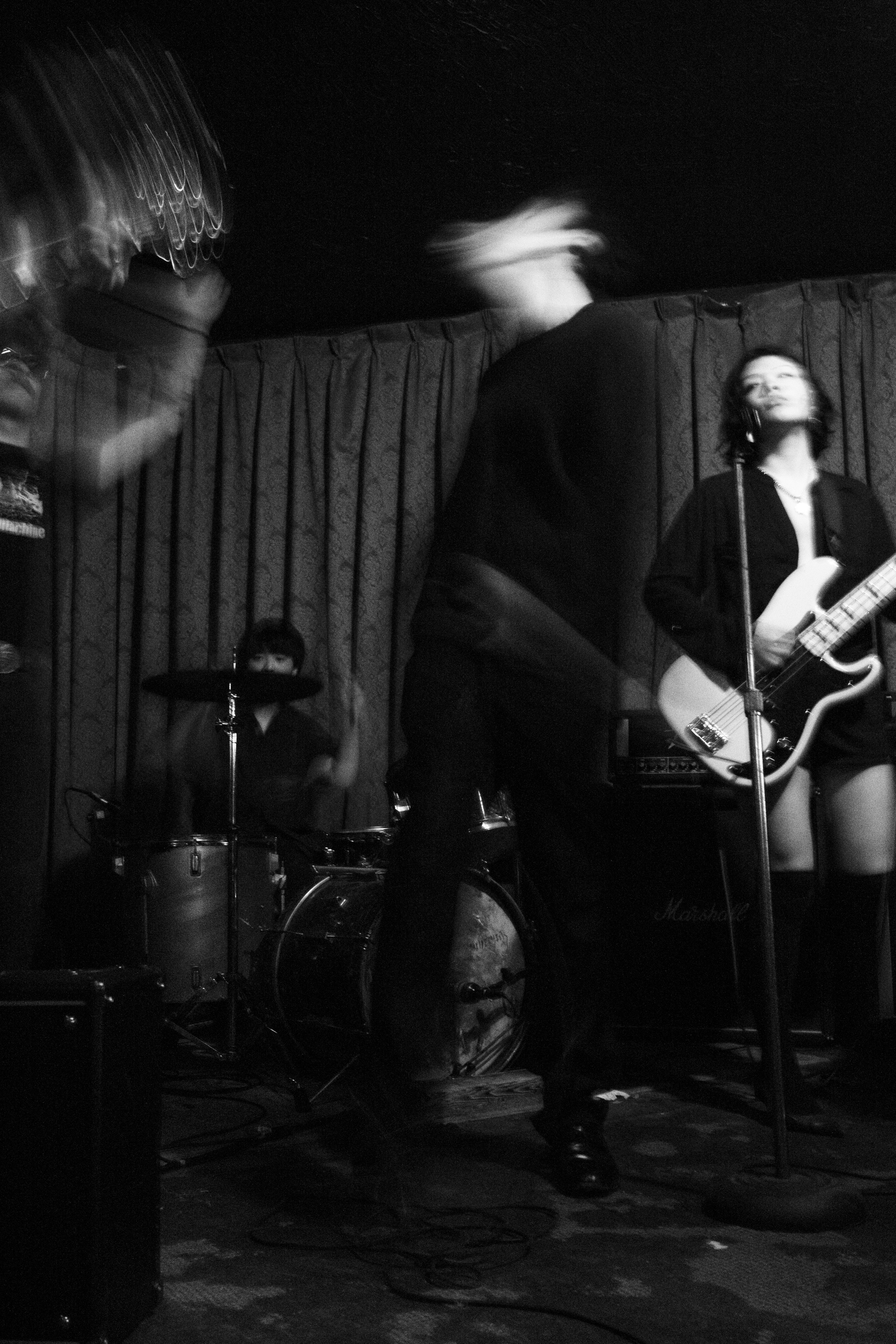
Merch Design
I have screen printed merch for myself and others.
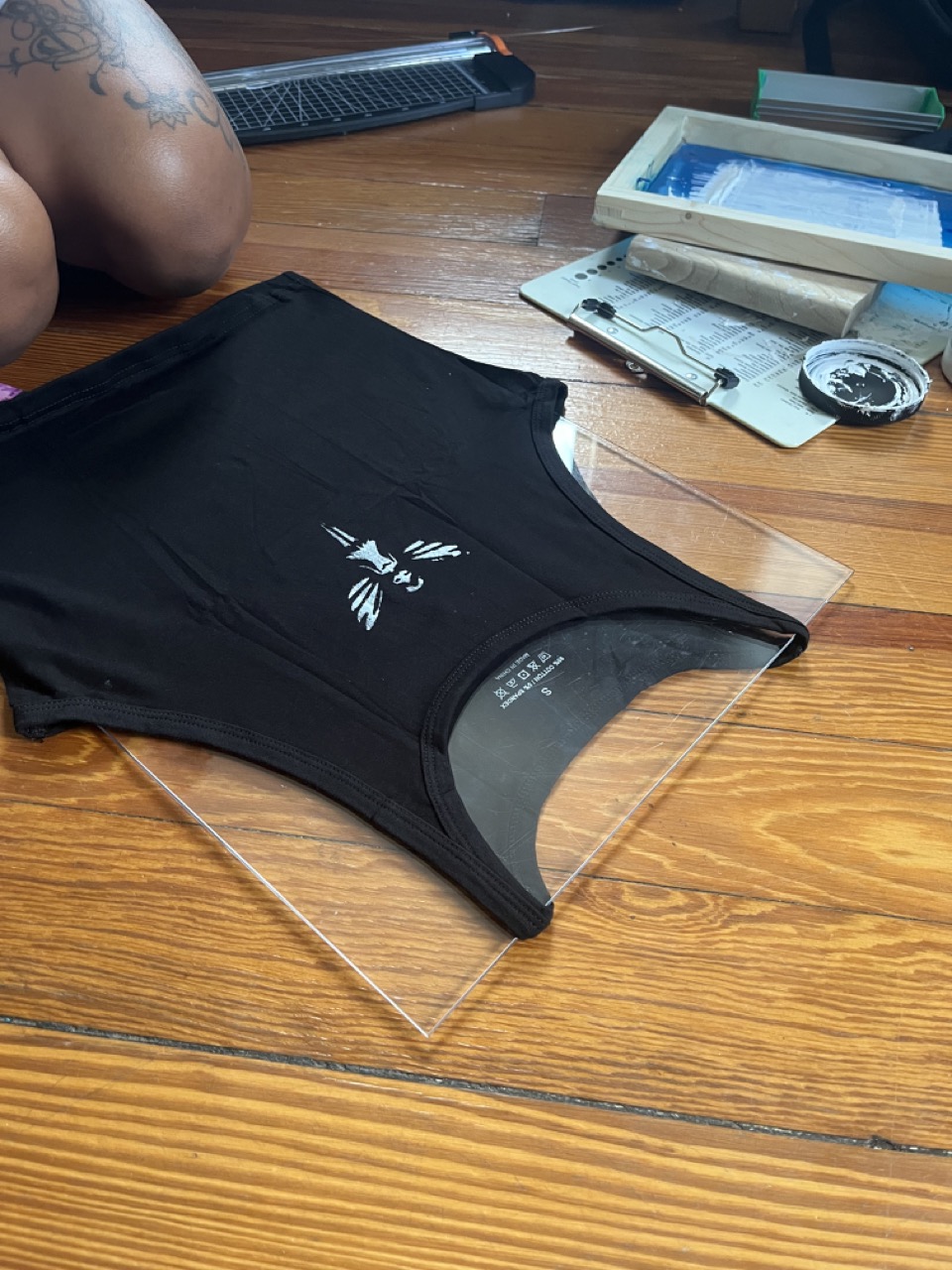
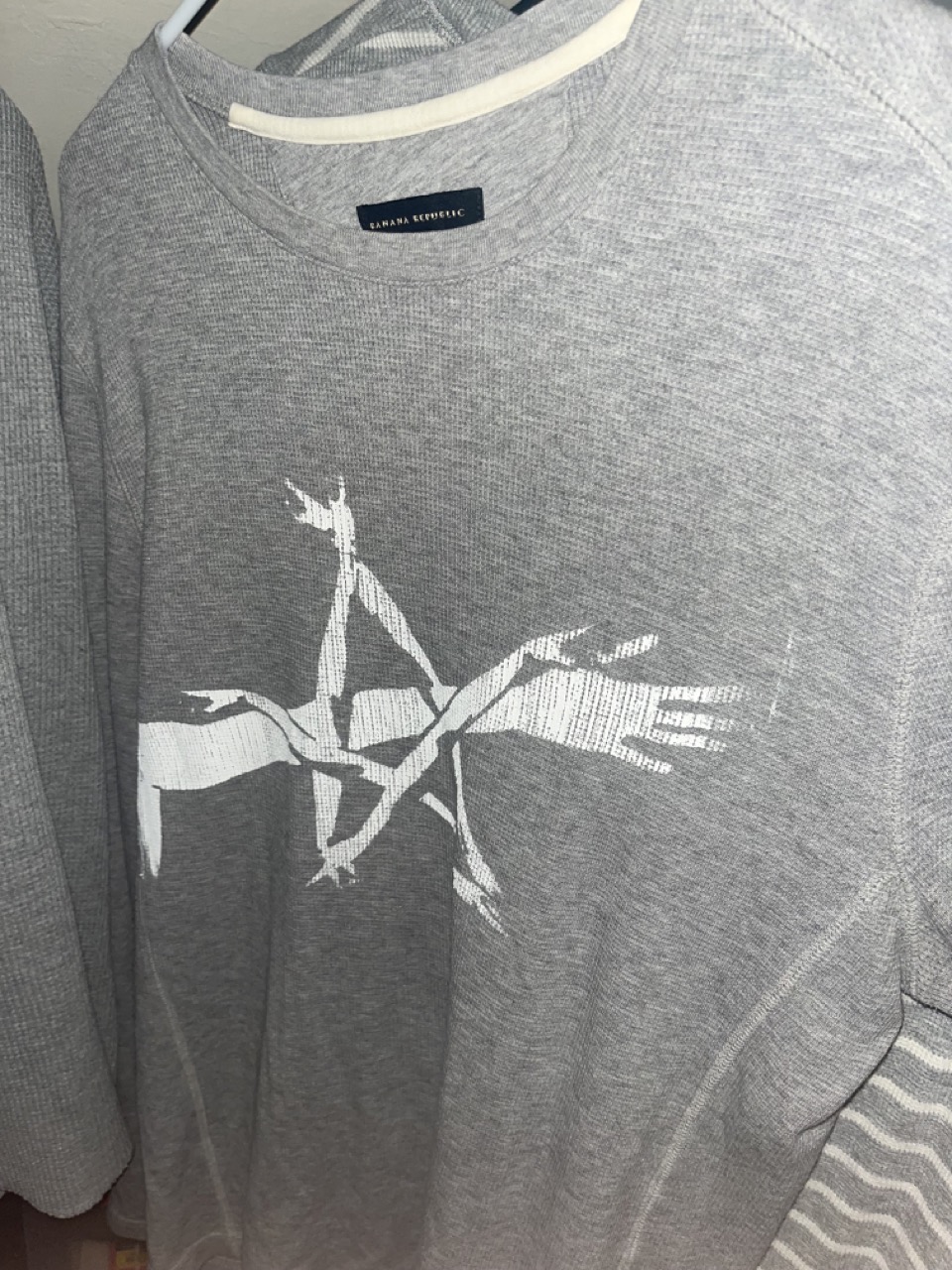
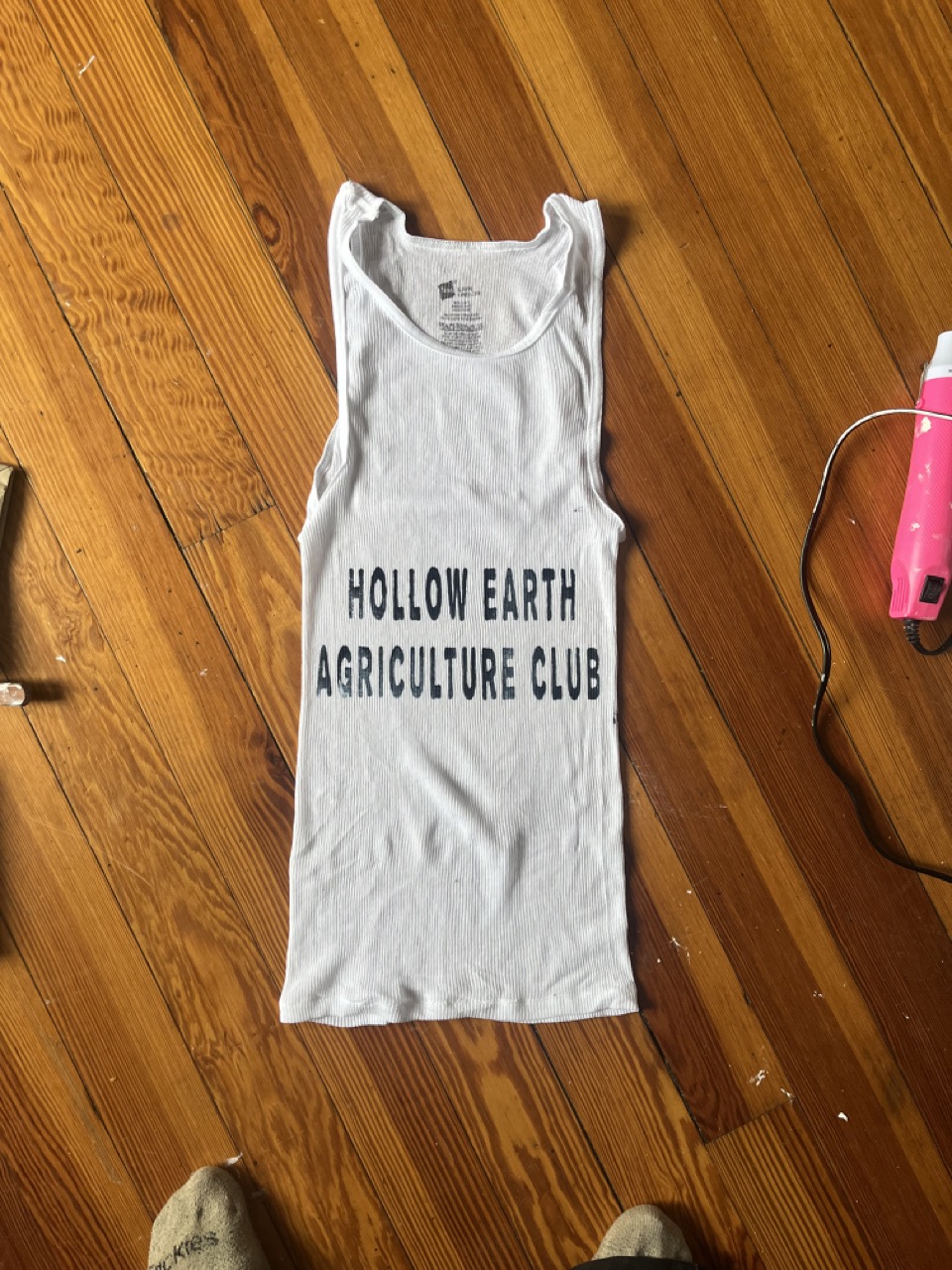
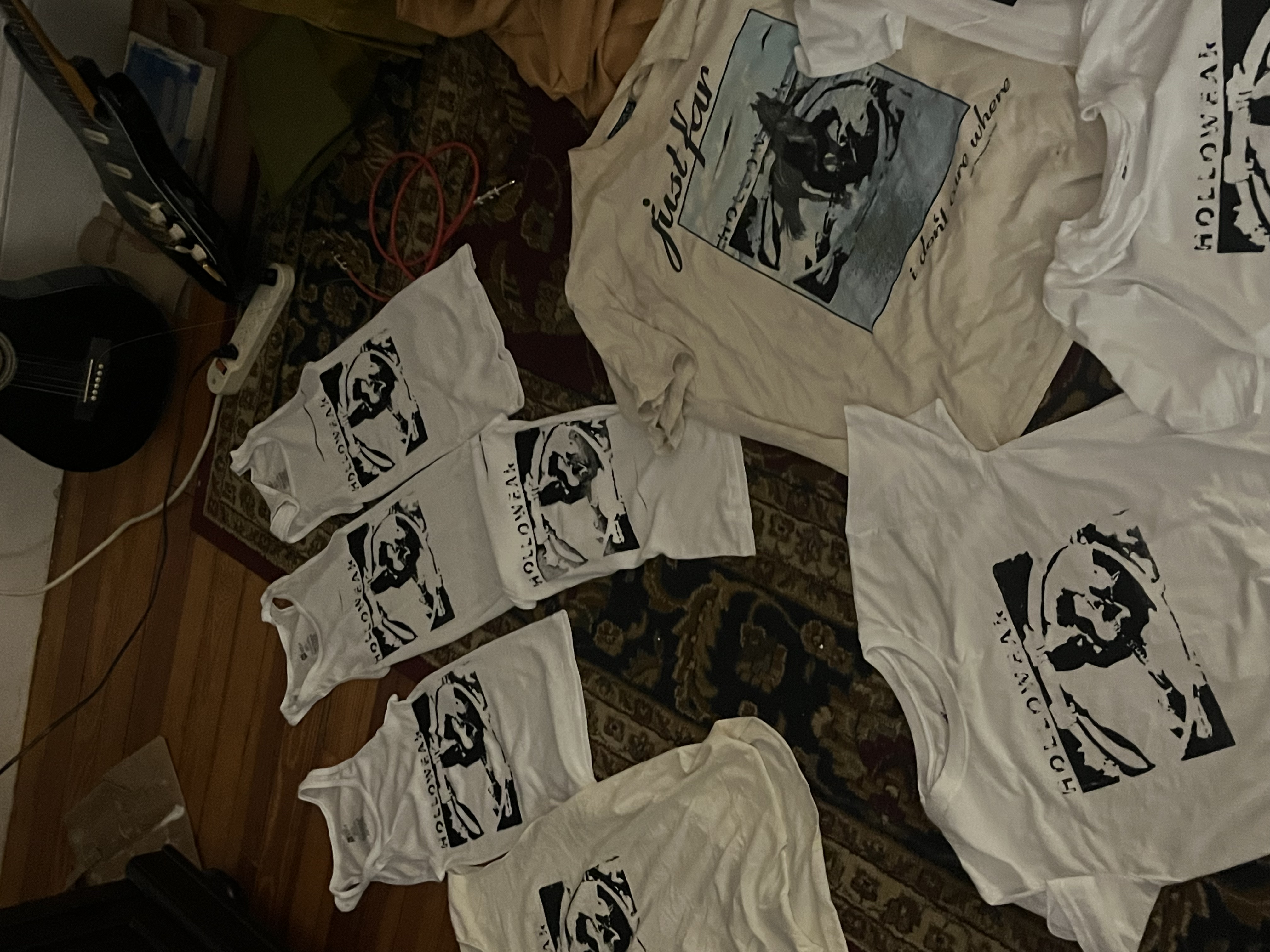
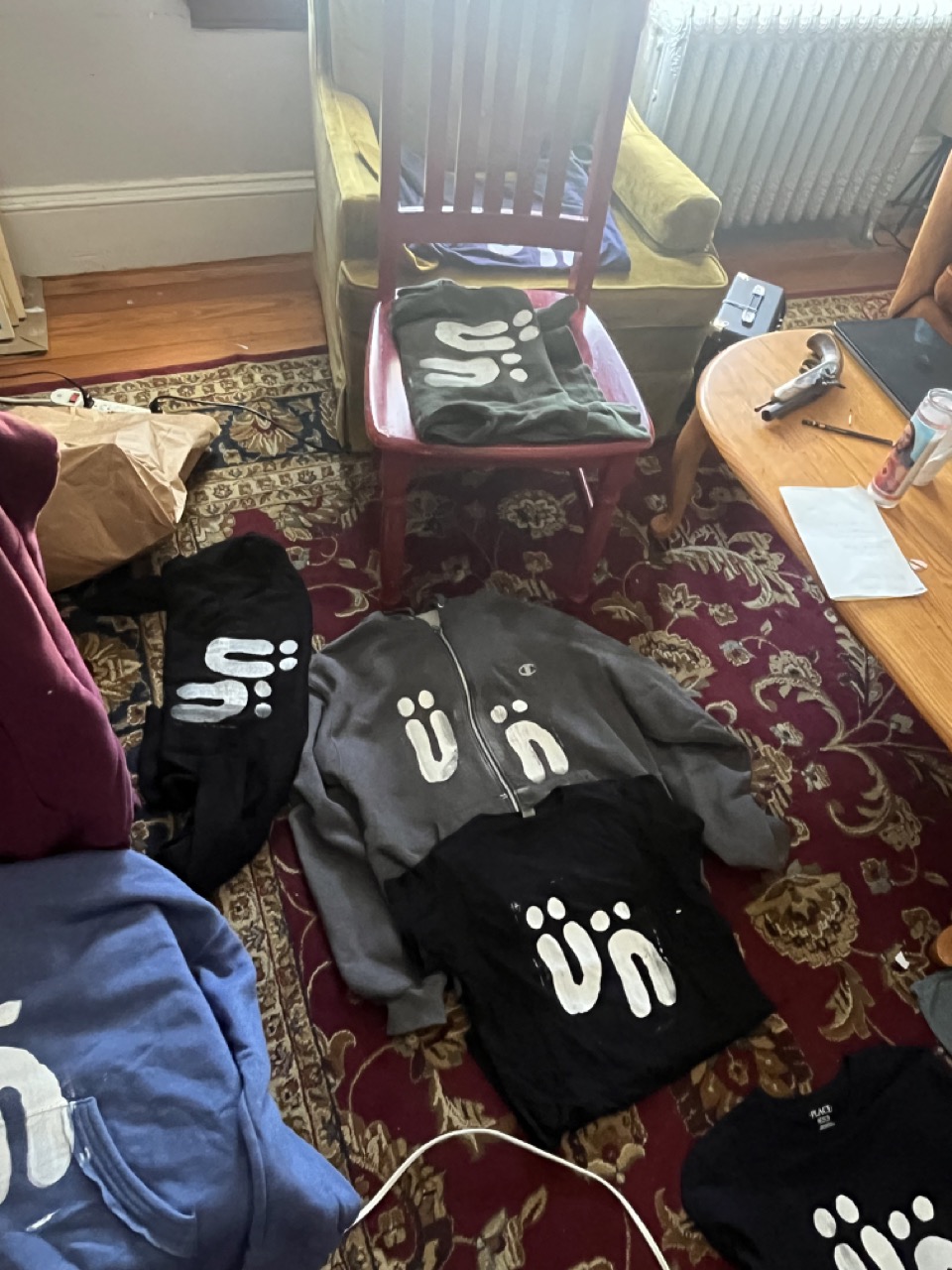
stochastic looper built in max

for lorenzo
Written from spring to fall of 2023, this piece represents a lot to me.
It is the culmination of a four year long friendship with violinist and conductor Lorenzo Gallegos.
This piece took a lot to write, rehearse, and perform.
It is my most ambitious purely instrumental piece to date.
Thematically, the piece is about the violence of perfection.
With each step, the performer must play at the highest level of ability, while pushing forward.
In vain, the performer tries to return to the beautiful, electric freedom of the first movement,
but is brought down by external forces.
For Lorenzo is about perseverance, about skill, and about what it means to be in command of yourself as an artist.
create gif moving from one image in ascii to another
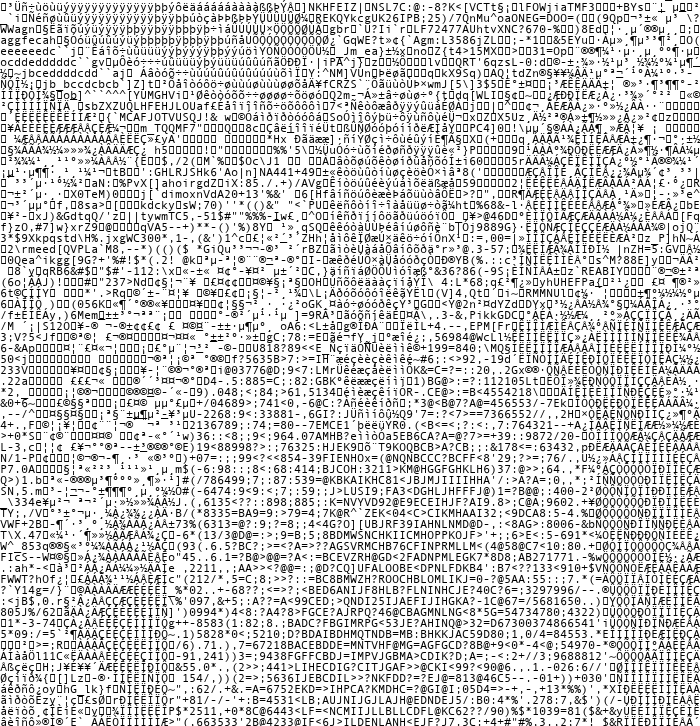
from PIL import Image, ImageFont, ImageDraw
import imageio
def transition_arrays(array1, array2):
transition_arrays = []
# Use the size of the smaller array if they are not the same length
min_length = min(len(array1), len(array2))
# Calculate the number of steps for the transition
steps = max(abs(array1[i][j] - array2[i][j]) for i in range(min_length) for j in range(len(array1[i])))
# Generate intermediate arrays
for step in range(steps + 1):
intermediate_array = []
for i in range(min_length):
row = []
for j in range(len(array1[i])):
# Calculate the intermediate value for each element
intermediate_value = int(array1[i][j] + (array2[i][j] - array1[i][j]) * step / steps)
row.append(intermediate_value)
intermediate_array.append(row)
transition_arrays.append(intermediate_array)
return transition_arrays
bred in stillness
def image_to_ascii(image_path, width=100):
img = Image.open(image_path)
img = img.convert('L') # Convert to grayscale
aspect_ratio = img.height / img.width
height = int(width * aspect_ratio)
img = img.resize((width, height))
ascii_values = []
for y in range(height):
ascii_row = []
for x in range(width):
pixel_value = img.getpixel((x, y))
ascii_row.append(pixel_value)
ascii_values.append(ascii_row)
return ascii_values
# Load images and convert them to ASCII arrays
ascii_array1 = image_to_ascii('../IMG_2588.JPG')
ascii_array2 = image_to_ascii('../Ren1129_Ren1129-R1-073-35.jpg')
# Generate transition between the two ASCII arrays
transition = transition_arrays(ascii_array1, ascii_array2)
scenes from caved in
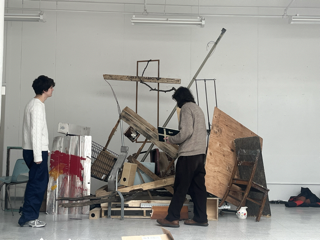
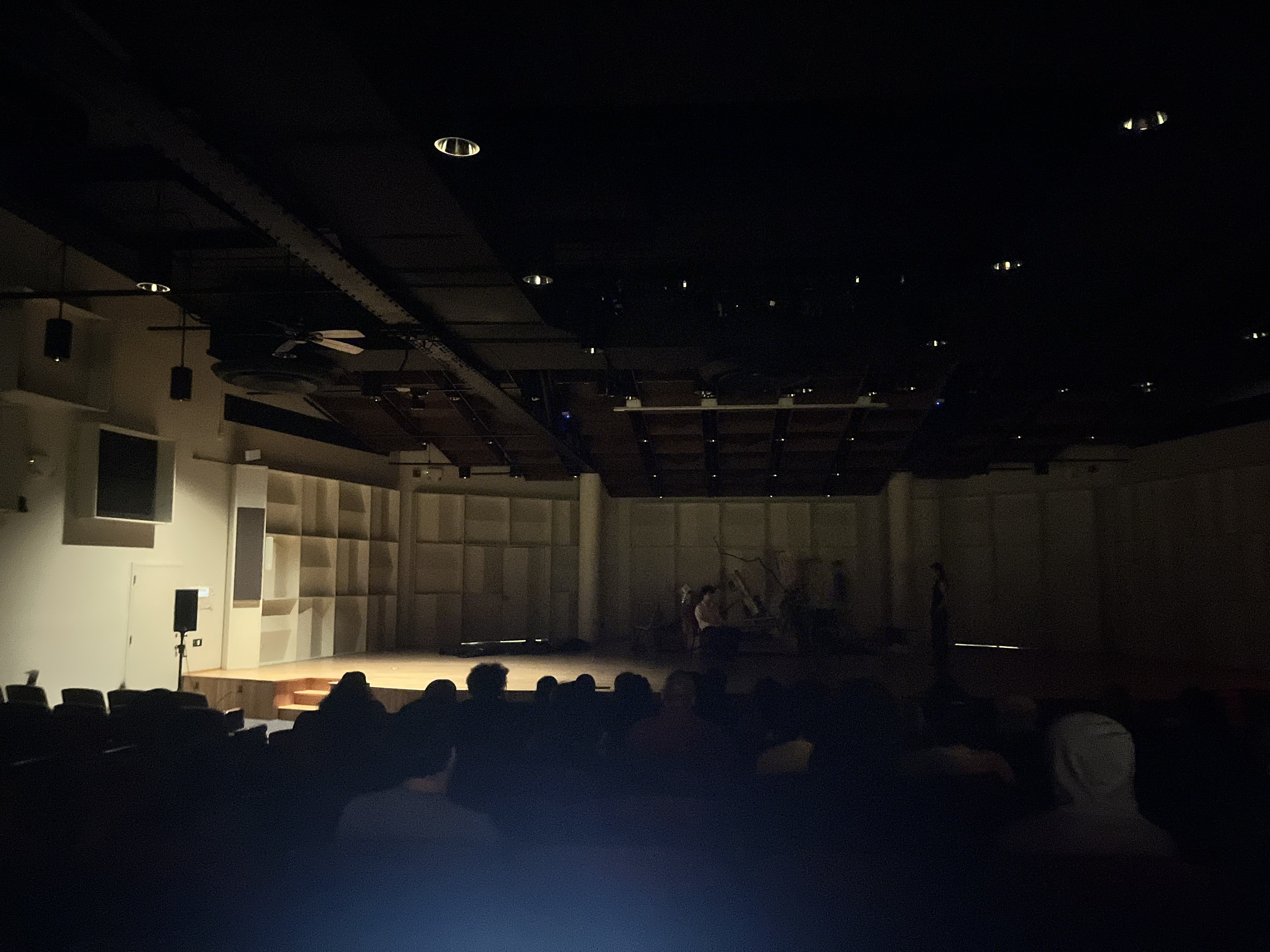
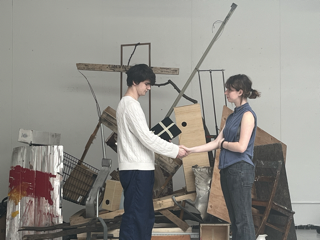
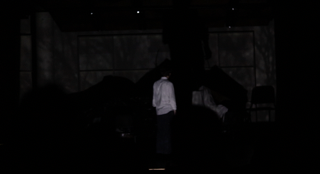
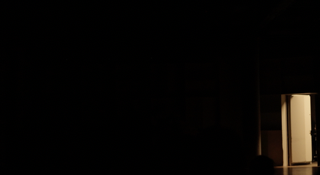
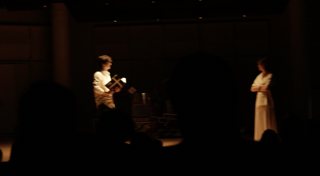
def create_ascii_gif(transition_arrays, output_path, fps=10, first_last_duration=500):
# Define font
font_path = "/System/Library/Fonts/Andale Mono.ttf" # Change this to the path of a monospaced font on your system
font_size = 12
font = ImageFont.truetype(font_path, font_size)
# Get the dimensions of the characters in the font
char_width, char_height = font.getsize("A")
images = []
for ascii_array in transition_arrays:
# Calculate the dimensions of the image based on the size of the ASCII array and the font
width = len(ascii_array[0]) * char_width
height = len(ascii_array) * char_height
# Create a new image with white background
image = Image.new("RGB", (width, height), "white")
draw = ImageDraw.Draw(image)
# Draw ASCII characters on the image
y = 0
for row in ascii_array:
x = 0
for char_code in row:
char = chr(char_code)
draw.text((x, y), char, fill="black", font=font)
x += char_width
y += char_height
images.append(image)
# Save images to GIF
first_frame = images[0]
last_frame = images[-1]
images = [first_frame] + images + [last_frame]
durations = [first_last_duration] + [int(1000 / fps)] * len(transition_arrays) + [first_last_duration]
images[0].save(output_path, save_all=True, append_images=images[1:], duration=durations, loop=0)
# Example usage
output_path = 'ascii_transition.gif'
create_ascii_gif(transition, output_path)
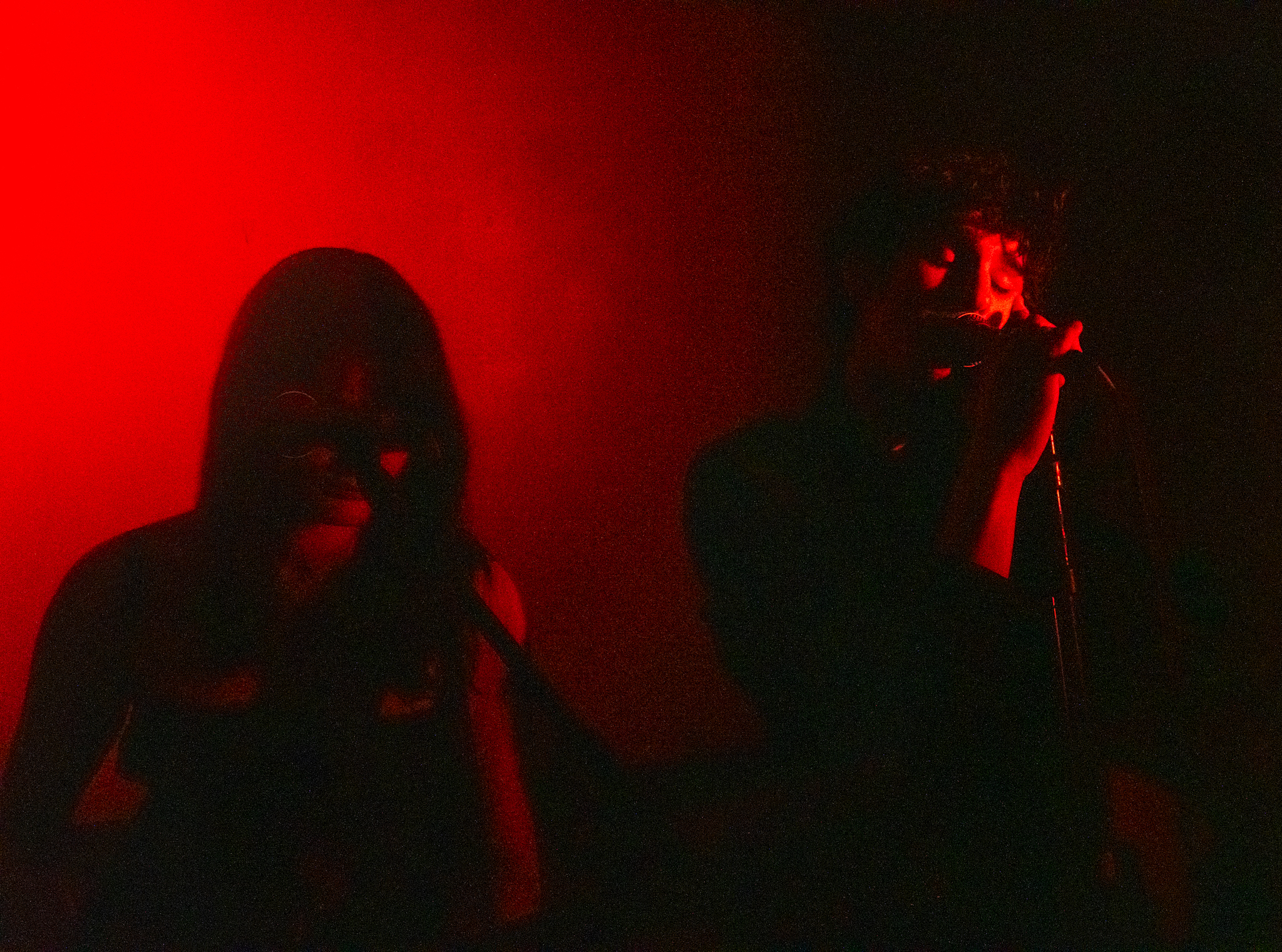
each night i carry myself to you
Written in 2022 over the course of the entire year, each night i carry myself to you is a one act chamber opera in three scenes.
The libretto, written by Dvorin and
Isabella Putorti, deals with two characters. One is stuck in their ways, unable to have the empathy to see the other.
The other, childlike, is upset and tried in vain to seek comfort from the other.
Devoid of place, time, gender, the story deals with how grief and comfort can go wrong.
The original performance featured Natalia D. Perera-Del Valle and Chujun Li, with Nicholas Salerno conducting his ensemble.
generate random song lyrics and chords based on a corpus
import random
def generate_markov_chain(text, order=2):
words = text.split()
chain = {}
for i in range(len(words) - order):
current_state = tuple(words[i:i + order])
next_word = words[i + order]
if current_state in chain:
chain[current_state].append(next_word)
else:
chain[current_state] = [next_word]
return chain
def generate_lyrics(chain, starting_state, length, switch_frequency=20):
current_state = starting_state
lyrics = list(starting_state)
word_count = len(starting_state)
while word_count < length:
if current_state in chain:
next_word = random.choice(chain[current_state])
lyrics.append(next_word)
current_state = tuple(lyrics[-len(starting_state):])
word_count += 1
# Insert indentation randomly every 9-15 words
if word_count % random.randint(9, 15) == 0:
if lyrics[-1] == ' ':
del lyrics[-1]
lyrics.append('\n')
if word_count % switch_frequency == 0:
current_state = random.choice(list(chain.keys()))
else:
current_state = random.choice(list(chain.keys()))
if lyrics[0] == ' ':
del lyrics[0]
return " ".join(lyrics[:length])
def add_chords_to_lyrics(lyrics):
chords = [
"C", "D", "E", "F", "G", "A", "B",
"Cm", "Dm", "Em", "Fm", "Gm", "Am", "Bm",
"C7", "D7", "E7", "F7", "G7", "A7", "B7",
"Cmaj7", "Dmaj7", "Emaj7", "Fmaj7", "Gmaj7", "Amaj7", "Bmaj7",
"Cm7", "Dm7", "Em7", "Fm7", "Gm7", "Am7", "Bm7",
"Cdim", "Ddim", "Edim", "Fdim", "Gdim", "Adim", "Bdim",
"Caug", "Daug", "Eaug", "Faug", "Gaug", "Aaug", "Baug",
"Csus2", "Dsus2", "Esus2", "Fsus2", "Gsus2", "Asus2", "Bsus2",
"Csus4", "Dsus4", "Esus4", "Fsus4", "Gsus4", "Asus4", "Bsus4"
]
loop1 = random.sample(chords, 4)
loop2 = random.sample(chords, 4)
combined_chord_loop = loop1 + loop2
lyrics_lines = lyrics.strip().split('\n')
lyrics_with_chords = []
for i, line in enumerate(lyrics_lines):
chord_index = i % len(combined_chord_loop)
chord = combined_chord_loop[chord_index]
chord_line = chord.ljust(10)
lyrics_with_chords.append(chord_line)
lyrics_with_chords.append(line)
return '\n'.join(lyrics_with_chords)
def generate_song_structure(num_verses, num_choruses, chain, starting_states):
song_structure = ""
chorus_lyrics = add_chords_to_lyrics(generate_lyrics(chain, random.choice(starting_states[num_verses:]), 50, switch_frequency=20))
verse_index = 0
chorus_index = 0
for i in range(num_verses + num_choruses):
if verse_index < num_verses:
song_structure += f"Verse {verse_index + 1}:\n{add_chords_to_lyrics(generate_lyrics(chain, starting_states[verse_index], 100, switch_frequency=20))}\n\n"
verse_index += 1
if chorus_index < num_choruses:
song_structure += f"Chorus {chorus_index + 1}:\n{chorus_lyrics}\n\n"
chorus_index += 1
return song_structure
def generate_song(num_verses, num_choruses, lyrics_text):
with open('lyrics.txt', 'r') as file:
song_lyrics = file.read()
song_lyrics = lyrics_text.strip().lower()
chain = generate_markov_chain(song_lyrics, order=2)
starting_states = [random.choice(list(chain.keys())) for _ in range(num_verses + num_choruses)]
song_structure = generate_song_structure(num_verses, num_choruses, chain, starting_states)
return song_structure
average pixels of images in a folder



import os
import cv2
import numpy as np
def resize_and_average(image, block_size):
resized_image = cv2.resize(image, (image.shape[1] // block_size, image.shape[0] // block_size))
averaged_image = np.zeros_like(resized_image)
for i in range(0, resized_image.shape[0], block_size):
for j in range(0, resized_image.shape[1], block_size):
block = resized_image[i:i+block_size, j:j+block_size]
averaged_color = np.mean(block, axis=(0, 1))
averaged_image[i:i+block_size, j:j+block_size] = averaged_color
return averaged_image
def process_images(image_folder, output_folder, block_size=5):
for filename in os.listdir(image_folder):
if filename.endswith(('.jpg', '.jpeg', '.png')):
image_path = os.path.join(image_folder, filename)
image = cv2.imread(image_path)
averaged_image = resize_and_average(image, block_size)
output_path = os.path.join(output_folder, os.path.splitext(filename)[0] + '.png')
cv2.imwrite(output_path, averaged_image)
if __name__ == "__main__":
input_folder = "/Users/samdvorin/Desktop/JIMRATCODE/412jimratpics"
output_folder = "/Users/samdvorin/Desktop/JIMRATCODE/412jimratpics/small"
process_images(input_folder, output_folder)